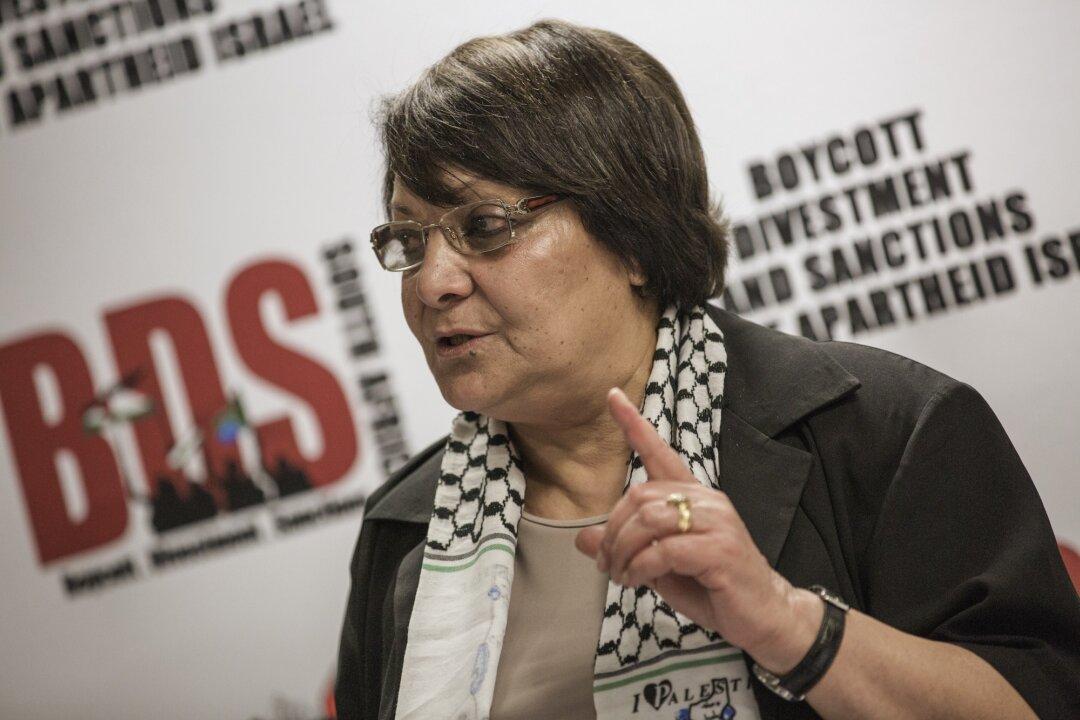YouTube and Zoom intervened on Wednesday to stop a virtual event held by San Francisco State University (SFSU) featuring Leila Khaled, a prominent Palestinian terrorist and plane hijacker.
The event, titled “Whose Narratives? Gender, Justice, & Resistance: A conversation with Leila Khaled,” was scheduled to take place via Zoom. Khaled, 76, is a veteran member of the Popular Front for the Liberation of Palestine, a designated terrorist organization by the U.S. Department of State. She is most notorious for her participation in the hijacking of a passenger jet en route from Rome to Tel Aviv in 1969.





